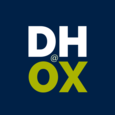A Humanities Web of Data 2014
A Humanities Web of Data: Publishing, Linking and Querying on the Semantic Web
Organiser: Kevin Page (Oxford e-Research Centre, University of Oxford)
Morning Location: Wolfson College, Seminar Room 2
Afternoon Location: IT Services, Evenlode Room
Workshop Speakers: David De Roure (Oxford e-Research Centre, University of Oxford), Dominic Oldman (British Museum), Kevin Page(Oxford e-Research Centre, University of Oxford), John Pybus (Oxford e-Research Centre, University of Oxford) and Sebastian Rahtz (IT Services, University of Oxford)
Workshop Abstract
This workshop will introduce the concepts and technologies behind the Semantic Web and show how attendees can publish their research so that it is available as Linked Data, using distinct but interwoven models to represent services, data collections, workflows, and -- so to simplify the rapid development of integrated applications to explore specific findings -- the domain of an application. Topics covered will include: the RDF format; modelling your data and publishing to the web; querying RDF data using SPARQL; choosing and designing vocabularies and ontologies; and more.
The work of a digital humanities researcher is informed by the possibilities offered in digital resources: in their ever increasing number and their distribution and access through the Internet.
In this context, the Semantic Web can be seen as a framework to enables radical publication, sharing, and linking of data for, and by, researchers.
The workshop comprises a series of lectures and tutorials including:
- Scaling Digital Humanities on (and utilising) the Web
- The Semantic Web and Why You Should Care
- Practical Linked Data for Digital Humanities Researchers
- RDF Basics
- Linked Data
- Triplestores and SPARQL
- Ontology design
- Worked examples of Semantic Web systems and application for Digital Humanities:
- The British Museum Semantic Web Collection
- CLAROS: The world of art on the semantic web
- Music Information Retrieval: How country is my country?
- Solutions surgery: how could the Semantic Web aid your research?
Workshop Timetable
The programme begins with a motivating example from the field of music, based of the organisers own research. This will demonstrate how Semantic Web technologies can be practically applied to the Humanities, and serves as a use case through which attendees be introduced to the technical underpinnings of such systems during the first half of the week. In the latter half of the week this knowledge will be applied to real world examples introduced by invited speakers, with two specific Semantic Web deployments framing tutorials and discussion on Thursday and Friday: the British Museum, and CLAROS.
| Times | Monday 14 July 2014 | Tuesday 15 July 2014 | Wednesday 16 July 2014 | Thursday 17 July 2014 | Friday 18 July 2014 |
| Morning: 11:00-12:30 Wolfson College, Seminar Room 2 |
"Scaling Digital Humanities on (and utilising) the Web: an Introduction aka The Semantic Web and Why You Should Care"Kevin Page |
"Practical Linked Data for Digital Humanities Researchers: an example in Music Information Retrieval Part 2"Kevin Page |
"myExperiment and other animals"David De Roure |
"The British Museum Semantic Web Collection"Dominic Oldman |
"CLAROS: The World of Art on the Semantic Web"Sebastian Rahtz |
| Afternoon: 14:00-16:00 and 16:30-17:30 IT Services, Evenlode Room |
"Practical Linked Data for Digital Humanities Researchers: an example in Music Information Retrieval Part 1"Kevin Page
"Hands on: RDF Basics"Kevin Page and John Pybus |
"Hands on: Triplestores, and SPARQL"Kevin Page and John Pybus |
"Ontologies"John Pybus
"Hands on: Building your own ontology"John Pybus |
"Hands on: Exploring and using the British Museum Endpoint"Dominic Oldman |
"Hands on: Building Claros, a worked example"Sebastian Rahtz
"Group Discussion and Solutions Surgery: how you might apply the semantic web to your work"John Pybus |
European Science Foundation Funding

The NeDiMAH bursaries given to some participants in this workshop are sponsored by the European Science Foundation (ESF). As a requirement of this funding this 'meeting' some details of participants are required to be provided to the ESF.
The ESF was established in 1974 to provide a common platform for its Member Organisations to advance European research collaboration and explore new directions for research. It is an independent organisation, owned by 67 Member Organisations, which are research funding organisations, research performing organisations and academies from 29 countries. ESF promotes collaboration in research itself, in funding of research and in science policy activities at the European level. Currently ESF is reducing its research programmes while developing new activities to serve the science community, including peer review and evaluation services.
Other Notes
Any other notes provided by the workshop organiser will go here if available



